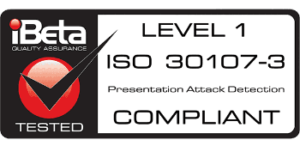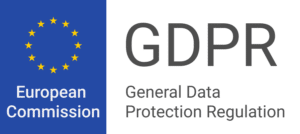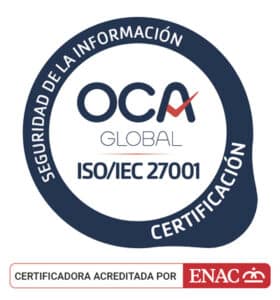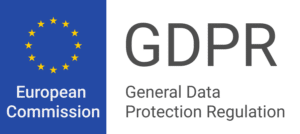Veridas Named a Representative Vendor in the 2023 Gartner® Market Guide for Identity Verification and the 2023 Market Guide for User Authentication
Veridas Included for Second Consecutive Year in the Market Guide for Identity Verification and for the second time in the Market Guide for User Authentication
Veridas, the Spanish technology company specializing in digital identity and biometrics, today announced it has once again been included in the Gartner Market Guides for Identity Verification and User Authentication.
The Gartner Market Guides include definitions, benefits, key findings and recommendations for organizations looking to implement and utilize both User Authentication and Identity Verification technologies for security, risk management and fraud prevention.
As defined in the Market Guide for User Authentication, “User authentication is used to provide credence in an identity claim for a person already known to an organization. The credence must be sufficient to bring account takeover (ATO) risks within the organization’s risk tolerance. Without effective authentication, the security of and trust in that person’s digital interactions are deeply undermined”.
When discussing the market direction for User Authentication, the Market Guide states “IAM leaders (and everyone else) should also reflect diversity, equity and inclusion (DEI) considerations. To avoid impairing security, as well as UX, IAM leaders should choose methods that are equitable across different clines. IAM leaders should also pay attention to socioeconomic bias, especially with regard to the acceptability and possession of different authenticators.”
“We think the Market Guide touches on the drastic difference in utilization of biometric technology when socioeconomic bias is ignored. At Veridas, our roots are firmly planted in the idea that users should not suffer in order to authenticate themselves, they should be able to do so freely and entirely as they are,” said Eduardo Azanza, CEO, of Veridas. “For this reason, we urge biometric adopters to explore a range of biometric tools, such as Face and Voice biometrics, to best support their users.”
Additionally, in the Gartner Market Guide for Identity Verification, Identity Verification is defined as “the combination of activities during a remote interaction that brings a real-world identity claim within organizational risk tolerances. Identity verification capabilities, delivered as SaaS or on-premises, provide the assurance that a real-world identity exists and that the individual claiming the identity is its true owner and genuinely present during a remote interaction.”
For security and risk management leaders who focus on identity and access management, the Gartner Market Guide for Identity Verification recommends leaders “Investigate if multiple use cases exist within your organization where the technology can improve security and/or UX both across workforce and customer interfaces. Examples include:
- Customer use cases such as automating Know Your Customer (KYC) processes, preventing identity fraud during application processes, and increasing trust between buyers and sellers on marketplaces.
- Workforce use cases such as remote hiring, onboarding, and ensuring the integrity of credentialing and account recovery processes.”
The Gartner Market Guide for Identity Verification additionally highlighted common layers of defenses for both presentation and injection attacks, including Liveness detection, defined as “Active or passive techniques to assess genuine human presence prior to the selfie being taken. Active techniques typically involve asking the user to perform an action, such as turning their head or smiling. Passive techniques may involve looking for micromovement in the face, 3D depth analysis, and changes in light reflection as blood flows under the skin and others.”
“Liveness detection continues to drive organizations trust and reliability in biometric technology,” said Eduardo Azanza, CEO, Veridas. “As deepfake attacks continue to increase, we are able to stop threat actors in their tracks with our easy-to-use and 100% proprietary technology.”
For more information about Veridas’ industry-leading solutions, Veridas invites you to explore its website and engage with them on LinkedIn. We are shaping the future of identity verification and authentication.
Hype Cycle for Digital Identity, 2023 discusses this not only in the profile for third-party biometrics but also in the profile for identity verification (which uses biometric facial recognition technologies). Vendors should also review Product Managers Must Reduce Bias in Biometrics.
2 In particular, there is an increase in the market emphasis on smartphones for authentication, which risks marginalizing the minority that do not own them. Many passwordless solutions rely on a user enrolling multiple personal devices — smartphones, tablets, PCs and hardware tokens — to create a “chain of trust,” which enables identity recovery if a device is lost, stolen or otherwise replaced. This approach demonstrates a lack of awareness and empathy for the many global customers and citizens for whom this is impractical at best: The Digital Lives of Refugees: How Displaced Populations Use Mobile Phones and What Gets in the Way, GSMA. Exploring the UK’s Digital Divide, Office for National Statistics. Some Digital Divides Persist Between Rural, Urban and Suburban America, Pew Research Center.
Gartner, Market Guide for Identity Verification, Akif Khan, Robertson Pimentel, Sean ONeill, Swati Rakheja, 7 September 2023
Gartner, Market Guide for User Authentication, Ant Allan, James Hoover, Robertson Pimentel, 23 August 2023
GARTNER is a registered trademark and service mark of Gartner, Inc. and/or its affiliates in the U.S. and internationally and is used herein with permission. All rights reserved. Gartner does not endorse any vendor, product or service depicted in its research publications, and does not advise technology users to select only those vendors with the highest ratings or other designation. Gartner research publications consist of the opinions of Gartner’s research organization and should not be construed as statements of fact. Gartner disclaims all warranties, expressed or implied, with respect to this research, including any warranties of merchantability or fitness for a particular purpose.
Veridas is a technology company that was founded in 2017 as a joint venture with BBVA. Since then, it has become a leading global player in the identity industry, serving over 250 clients across 25 countries in sectors such as banking, insurance, telecommunications, and public administration. Veridas’ success is built on its commitment to technology, talent, and hard work. Its mission is to enable secure and reliable identity verification and authentication through its cutting-edge biometric solutions.
Veridas focuses on the “Phygital” identity concept, combining physical and digital identity verification for a seamless user experience. Its modular solutions, which include fully proprietary facial biometrics, voice biometrics, and identity document verification technologies, can be tailored to any scenario.
Veridas was born with the purpose of guaranteeing people’s right to use their real identities in the digital and physical worlds, envisioning a passwordless and keyless future where people are recognized privately, securely, and voluntarily for who they are.
















